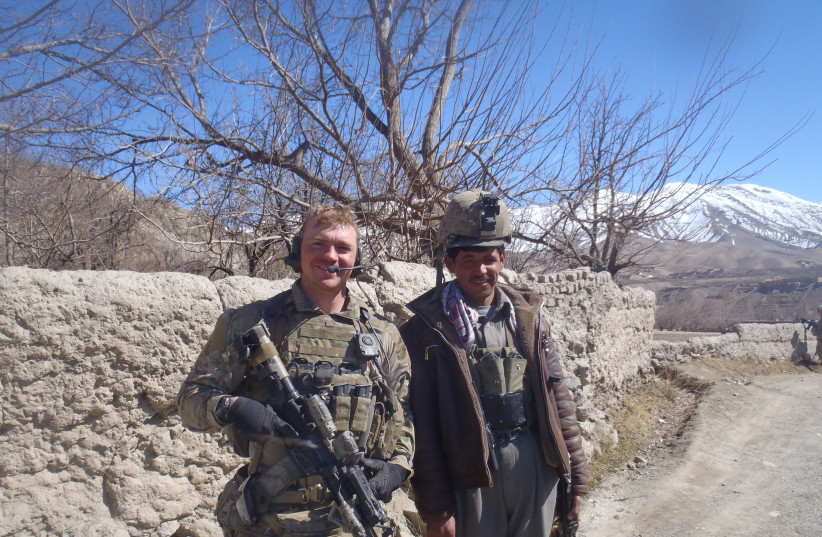
 Sprawa roszczeń: dlaczego Polska ma rację
Sprawa roszczeń: dlaczego Polska ma rację
Liek Leibovitz
[Tablet, 18 sierpnia 2021]
Tłumaczenie: Małgorzata Koraszewska
Robiąc sobie chwilę przerwy w fatalnym zarządzaniu szybko rozprzestrzeniającym się COVID-19 w kraju, który do niedawna chwalono jako światowego lidera w zwalczaniu pandemii, nowy premier i minister spraw zagranicznych Izraela znaleźli coś innego, o co mogą się strasznie martwić: Polskę.
W zeszłym tygodniu polski parlament uchwalił poprawkę do istniejącego prawa przez ustalenie 30-letniego limitu czasu dla wszystkich spraw dotyczących prób odzyskania utraconej własności, jak również wygaszenie wszystkich roszczeń, których nie rozstrzygnięto ostatecznie przez ostatnie trzydzieści lat. Takie ograniczenia czasowe nie są rzadkością w państwach europejskich, niemniej przywódcy izraelscy uznali polskie prawo za ni mniej ni więcej tylko zaprzeczanie Holocaustowi.
“To jest haniebna decyzja i skandaliczna pogarda wobec pamięci Holocaustu” – powiedział premier Bennett. Jego koalicyjny partner, Jair Lapid, przekuł gniew izraelskiego rządu w czyn, odwołał z Warszawy najwyższego rangą dyplomatę Izraela i poinstruował ambasadora Polski w Izraelu, który właśnie jest na urlopie w swoim rodzinnym kraju, by „pozostał tam do odwołania”.
“Polska – grzmiał Lapid – stała się dzisiaj antydemokratycznym, nieliberalnym krajem, który nie szanuje największej tragedii w historii ludzkości”.
Tak więc minister spraw zagranicznych Izraela nie uważa, że roszczenia do własności po sejsmicznych zmianach, takich jak wielkie wojny, zmiany granic na dużą skalę i inne zmieniające rzeczywistość historyczne wydarzenia, powinny mieć jakieś granice czasowe – ani że kraje mogą mieć prawo (a wręcz moralną odpowiedzialność) do odcięcia przeszłości grubą kreską i zajęcia się zabezpieczaniem szczęścia i dobrobytu ludzie, którzy obecnie tam żyją. Zamiast tego wyobraża sobie pokolenia Żydów wymachujących zardzewiałymi kluczami do ich domów rodzinnych w Krakowie lub w jakimś nieistniejącym już sztetlu i przysięgających, że któregoś dnia odzyskają nieruchomości swoich przodków, które od tego czasu stały się domami innych ludzi, którzy starają się budować przyszłość dla swoich dzieci najlepiej jak potrafią.
Czy to brzmi jak ktoś, kogo dobrze znamy?
Mamy słowo na niekończące się przywiązanie do mitycznych roszczeń do własności z jęczeniem, błaganiem, potępianiem i odwoływaniem się do absurdalnie wypaczających interpretacji międzynarodowego prawa przy równoczesnym obwinianiu innych ludzi za własne problemy: Palestyńczyk. Ta strategia wiecznego usychania z tęsknoty i odgrywania ofiary, i żądań rekompensaty za krzywdy zadane przez historię zamieniała Palestyńczyków w polityczne ofiary losu dosłownie na każdym zakręcie ich krótkiej i nieszczęsnej kolektywnej historii. Jest więc całkowicie niepojęte, że wysoki rangą izraelski dygnitarz niefrasobliwie stosuje teraz tę samą zapatrzoną w przeszłość logikę. Jest to tym bardziej zdumiewające, że ten sposób życia jest tym właśnie, co miało zostać zastąpione przez syjonizm.
Ruch odzyskania żydowskiej ojczyzny nigdy nie koncentrował się na koncepcji, że nasi przodkowie, począwszy od Abrahama, byli właścicielami kawałka nieruchomości w najbardziej obiecanej ziemi; Herzl doprawdy nie był biblistą. Ciągnęło nas do Ziemi Izraela nie z powodu jakichś pożółkłych historycznych aktów własności do jakichś miejsc, ale z powodu tego, że był to tygiel naszego narodu, miejsce kulturowej i historycznej pamięci, która mówiła nam, byśmy zbudowali własny kraj i czynili go raz za razem doskonalszym, bardziej ponadczasowym, bardziej żydowskim. Mówiąc najprościej, kluczową lekcją syjonizmu jest to, że mamy tylko jedną ojczyznę, a nie dziesięć.
Gdyby sensem syjonizmu było niekończące się wysuwanie roszczeń do nieruchomości, dlaczego zatrzymywać się na Izraelu? Powinniśmy teraz, zgodnie z logiką niekończących się zażaleń Lapida, skierować wzrok na Kordobę i Madryt, i zażądać hacjend, w których niegdyś mieszkali nasi przodkowie. Ach, złoty wiek w Hiszpanii! I dlaczego zatrzymywać się tam? A co z Surą i Pumbeditą, babilońskimi domami talmudycznych akademii, które między 589 a 1038 rokiem zrodziły tak wiele z tego, co dzisiaj znamy jako judaizm? Z pewnością tam też mamy roszczenia – jak również w Aleppo. A co z domem Majmonidesa w Kairze?
Czy jakikolwiek zdrowy na umyśle Żyd chce dzisiaj żyć w Iraku i Syrii? Nie. Te kraje należą do ich obywateli. Odwrotną stroną syjonizmu jest to, że Babilonia należy do Babilończyków, tak samo jak dzisiejsza Polska należy do ludzi, którzy dzisiaj nazywają siebie Polakami i którzy są zakorzenienie w polskiej historii, języku i kulturze. Choć przedstawiciele tego kraju mogą czasami mieć ciasne poglądy, mogą być drażliwi i nietaktowni, Polska jest ich krajem, a nie naszym.
Lapid ma zastąpić Bennetta u steru państwa w 2023 roku, co jest częścią porozumienia między ich partiami i każdy, kogo ciekawi, jak przyszły premier żydowskiego państwa może być takim ochoczym ignorantem i nie znać podstawowych koncepcji, które są samym fundamentem żydowskiego narodowego istnienia, powinien zaznajomić się z przemówieniem Lapida wygłoszonym na początku tego lata na Globalnym Forum Walki z Antysemityzmem. Radykalnie przedefiniowując najstarszą nienawiść świata, Lapid twierdził, że antysemityzm powinien być określeniem stosowanym do każdego rodzaju dyskryminacji każdej marginalizowanej grupy, a nie tylko do Żydów.
“Pora powiedzieć poprawną rzecz o antysemitach – powiedział. – Antysemici byli nie tylko w getcie w Budapeszcie. Antysemitami byli handlarze niewolników, którzy wrzucali skutych niewolników do morza. Antysemitami byli członkowie plemienia Hutu w Ruandzie, którzy masakrowali Tutsich. Antysemitami są ci muzułmanie, którzy w ostatnim dziesięcioleciu zabili ponad 20 milionów innych muzułmanów. Antysemitami są Państwo Islamskie i Boko Haram”.
Jeśli Lapid istotnie wierzy w ten durny bełkot, to czy nie powinien skupiać swojego gniewu na, powiedzmy, Niemczech, kraju, który rzeczywiście zorganizował i dokonał Holocaustu i który w zeszłym miesiącu odmówił reparacji potomkom dziesiątków tysięcy członków plemion Herero i Nama, których zmasakrował w Namibii w czasie okrutnej kolonizacji na początku XX wieku, proponując zaledwie mizerną inwestycję w rozwój infrastruktury Namibii jako symbol swojej skruchy?
Niestety, może być inny, bardziej tchórzliwy powód pełnego dumy ataku Lapida na Polaków, powód związany z pragnieniem nowego rządu Izraela zjednania sobie nowej administracji w Waszyngtonie.
Jak naprawić kurs sympatii do Trumpa, która była sygnaturą w polityce Bibi Netanjahu? Oto możliwość: dołączyć do sekretarza stanu Antony’ego Blinkena w potępianiu Polaków. Warszawa, jak może pamiętacie, gościła byłego premiera Netanjahu wraz z arabskimi i amerykańskimi dyplomatami w 2019 roku na konferencji poświęconej walce z irańskim zagrożeniem. Teraz, kiedy przymilanie się do morderczych mułłów jest ponownie trzonem amerykańskiej polityki bliskowschodniej, pora postawić tych uprzykrzonych Polaków tam, gdzie ich miejsce, w działce zatytułowanej „antysemici”.
Co za hańba. Ale Żydom – w Izraelu, Ameryce i wszędzie indziej – nie wolno przyjmować tak pokrętnego myślenia. Rzeczywistość jest jasna: Polska, kraj, który wycierpiał jak niewiele innych z powodu bliźniaczego zła nazizmu i komunizmu, ma wszelkie prawo do ustalenia sensownej granicy czasowej na roszczenia ludzi – tak Żydów, jak i nie-Żydów – którzy uważają, że historię trzeba zamrozić w czasie i zmusić do respektowania ich roszczeń do własności, która należy teraz do innych ludzi, którzy na niej pracują i żyją codziennym życiem. Polska ma wszelkie prawa do zapewnienia swoich obywateli, że żądania restytucji będą miały czasową granicę. I ma pełne prawo do oburzenia za przedstawianie jej jako w jakiś sposób centralnego miejsca historycznego, europejskiego antysemityzmu, podczas gdy Niemcy okrzyczane są jako model historycznej skruchy i pokuty, choć w dalszym ciągu obsypują miłością i gotówką dyktaturę, która jawnie neguje Holocaust i płaci za mordowanie Żydów na całym świecie.
Polska ma rację w tym konkretnym starciu, ale, co ważniejsze, Izrael rażąco i boleśnie nie ma racji. Nie powinno się wymieniać żydowskiego cierpienia, na podobieństwo żetonów w kasynie, na tanią walutę, by ją wykorzystać jako stawkę w jakimś wyglądającym na sprytne posunięciu politycznym. Żydowska historia – lub, ściślej, żydowska pamięć – ma sens i znaczenie właśnie dlatego, że zawsze odrzucała takie cwaniackie transakcje. Musimy tę tradycję utrzymać.
This story originally appeared in English in Tablet Magazine, at tabletmag.com, and is reprinted with permission.
Liel Leibovitz – Izraelsko-amerykański pisarz i dziennikarz. Urodził się w Tel Awiwie, mieszka obecnie w Stanach Zjednoczonych, jest publicystą magazynu „Tablet”.
Zawartość publikowanych artykułów i materiałów nie reprezentuje poglądów ani opinii Reunion’68,
ani też webmastera Blogu Reunion’68, chyba ze jest to wyraźnie zaznaczone.
Twoje uwagi, linki, własne artykuły lub wiadomości prześlij na adres:
webmaster@reunion68.com




